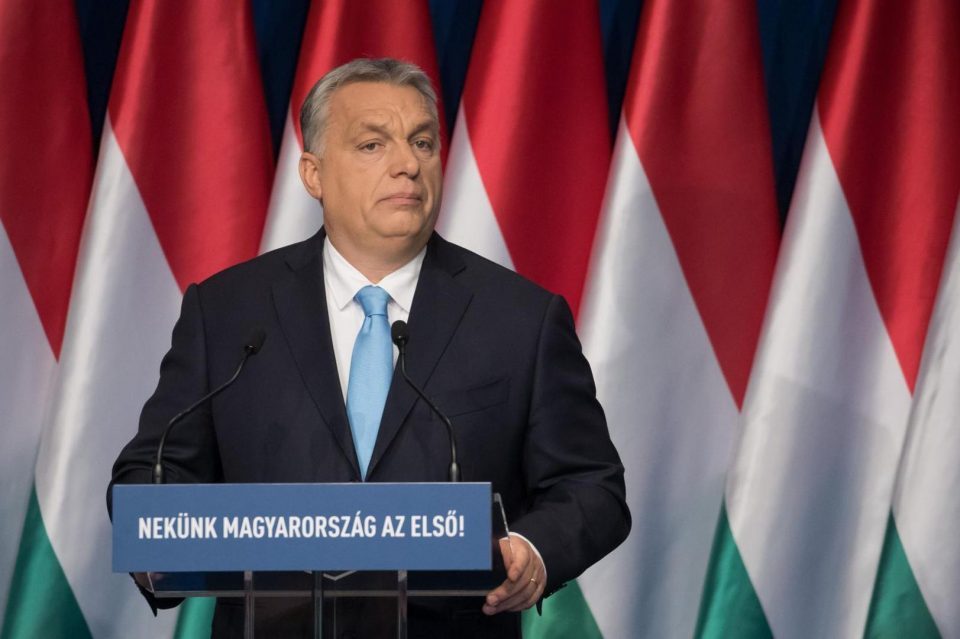If the government of a member state acts in line with Brussels’s playbook, it will not be subjected to scrutiny even if there is a lot of corruption and EU funds are being stolen. On the other hand, if a member state goes against the will of Brussels, it can expect to come under constant attacks, Dalibor Rohac, a senior associate at an American research institute, said in a video interview sent from an undisclosed email address to the editorial office of the daily Magyar Nemzet as part of a large set of documents exposing Brussels’ double standards, the V4 news agency reported.
The researcher described the attacks and all the unfounded discrimination against Hungary via how corruption and the country’s relationship with Russia are judged, pointing out that Brussels would heave a huge sigh of relief if Orban was ousted and the left returned to power in Hungary. Brussels, as well as the colluding international media outlets, tend to apply double standards not only over political but also economic issues, Dalibor Rohac said in an earlier interview. As a fellow researcher at the American Enterprise Institute, Mr Rohac looked at political and economic trends with a focus on Central and Eastern Europe and the European Union.
At one point in the conversation, the unidentifiable interviewer asked the researcher about how European media and politics would respond if Hungary’s prime minister was someone else, not Viktor Orban, nevertheless he would impose the same exact measures as the current head of government.
“Media elites and European institutions are likely to give actors they consider their own people the presumption of innocence, even in situations when this is denied from Orban,” Rohac said, and then went on to bring up former Slovak PM Robert Fico as an example.
Although Fico’s so-called Social Democratic government was rather corrupt, he was still considered one of their people because he sat in the European Socialists’ group, the researcher said, adding later that Mr Fico never had to face such unfavourable reactions as Viktor Orban usually receives from Brussels. I think Brussels would heave a huge sigh of relief if Orban was ousted and the Hungarian Socialists returned to government, Rohac said, and then he went on to explain why.
We must not forget that the Socialists suffered a defeat in 2010 in the wake of several corruption scandals and that Hungary was divided even before Orban, he recalled. Rohac presumably meant that Brussels regularly attacks and penalises the current Hungarian government on the grounds of corruption, even though the European Commission is not in the least interested in the alleged or actual extent of these abuses.
Rohac then threw some light on Brussels’ perspectives. “For example, I do not think that the Hungarian Socialists would try to present themselves as staunch opponents of migration to Europe,” the researcher said, adding that in his view, the Hungarian left was much less likely to get involved in debates about the situation in Europe as a whole or in discourses on migration, multiculturalism or liberalism. This, Mr Rohac pointed out, would buy them more room for manoeuvre in Brussels, something Bulgaria and Romania also did.
At this point, the researchers unveiled the double standards applied by Brussels. He said:
Bulgaria and Romania are more corrupt than Hungary and they are in worse shape overall. But from the perspective of European institutions they are more manageable in the sense that they do not veto European initiatives. In exchange, they get enough money from the Structural Funds, and even if some of it gets stolen or misused, these countries will basically act in line with what the EU expects them to do.
Without leaving Mr Rohac’s astonishing statement in the air, the interviewer asked: “So, you’re saying that countries that meet EU standards are not treated negatively, while Hungarian or Polish leaders who seek more independence are?” Yes, this is one aspect of how Realpolitik works, the researcher said, and finally he argued that it would be nice if Brussels were to hold all member states to the same standards. However, the example of Hungary and Poland shows that this is not the reality, he added.





Comments are closed for this post.